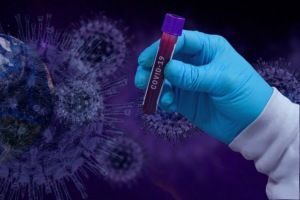News
People in their 20s most likely to be infected – coronavirus antibodies study
This article is more than 4 years old.
A third didn’t even know they had it, according to Statens Serum Institut findings, which suggest just under 4 percent of the nation has contracted COVID-19

The blood never lies. Didn’t Dexter once say that? (photo: Pixabay)
A new Statens Serum Institut study that measured coronavirus antibodies in blood samples dispels some of the coronavirus myths doing the rounds at present.
People in their 20s most likely
Despite daycare institutions and pre-teen educational establishments remaining open for most of 2020, during which time facemasks were mostly discouraged, less than 4 percent of Danish children under the age of 12 have been infected with COVID-19.
This was mostly in line with the national figures, as 3.9 percent of the Danish population over the age of 12 had been infected, as of the start of 2021.
The most affected age bracket were people in their 20s with 7.0 percent, while the over-65s managed just over 2 percent.
The results were based on the findings obtained from 17,808 citizens last autumn – a study that concluded on December 11.
A third didn’t notice being unwell
Among those who had the coronavirus, a third reported that they didn’t even feel unwell, according to the study.
Professor Hans Jørn Kolmos, a clinical microbiology expert at the University of Southern Denmark, says the figures underline how important it is to adhere to the restrictions.
“There is a considerable spread of infection that never reaches the surface,” he told TV2. “This virus is clearly more contagious than we thought.”
However, other experts have long contended that the spring coronavirus figures were far, far more severe than documented for this exact reason: many simply didn’t know they had it.










































